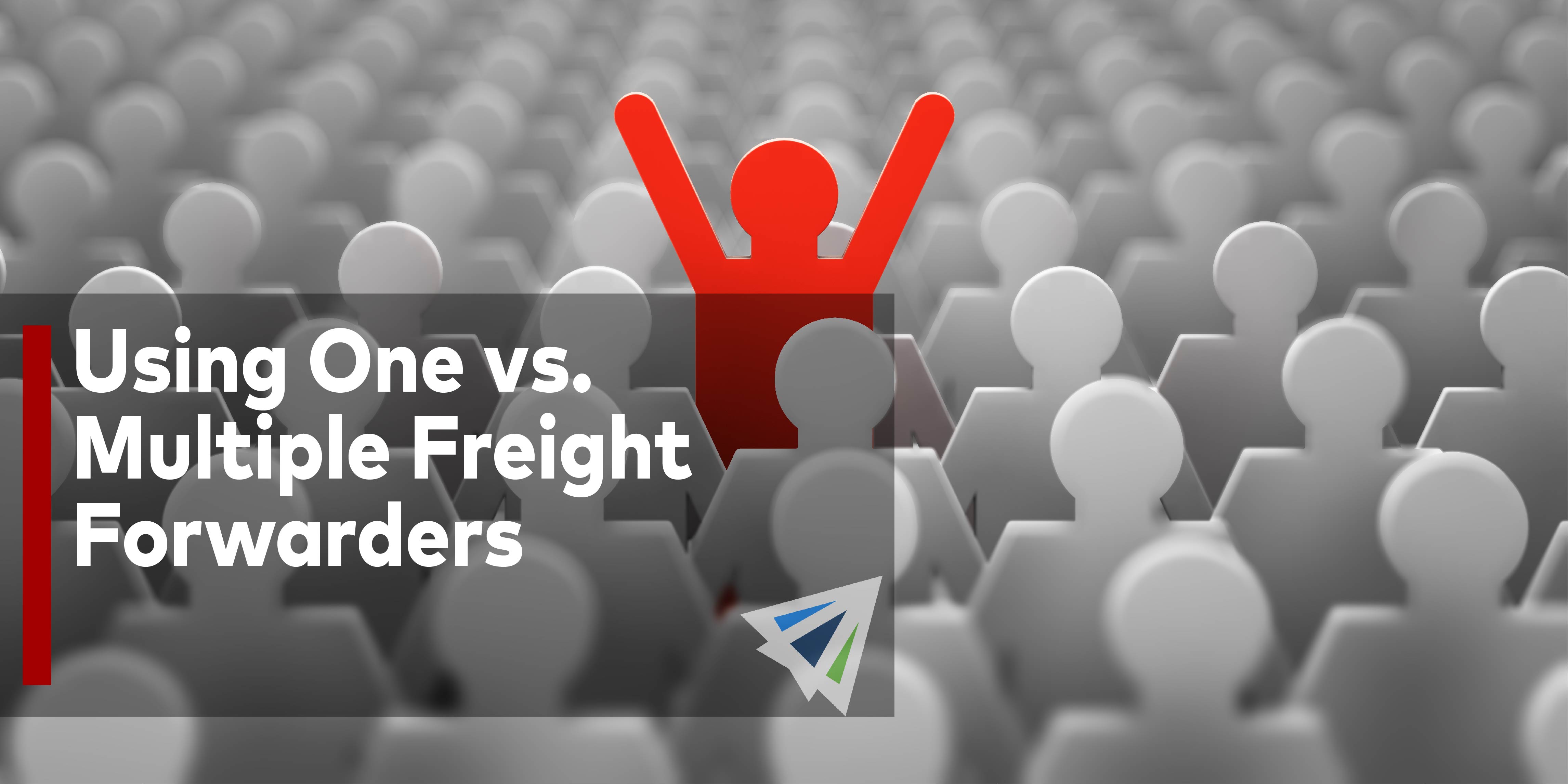Freight forwarders play a pivotal role in the shipping process of most international shipping companies. A freight forwarder steps in to handle all details of a shipment related to carriers, documentations, communication, and so much more. This frees up logistics managers to focus on the big picture, as well as their own internal team.
When it comes to freight forwarders, there’s no “right way” to use them. Some companies prefer using one freight forwarder to handle everything, while other companies use multiple freight forwarder for their various shipments. If you’re trying to figure out which approach is right for you and your company, here are some thoughts to consider:
Benefits of Using One Freight Forwarder
Many of our customers exclusively use Interlog USA as their freight forwarder, and for good reason. Depending on how your team manages shipments, how many lanes you have, what countries you ship to, and various other factors, sometimes it’s much easier and more effective to have one, experienced freight forwarder handle it all. These are some of the primary benefits of using one freight forwarder:
1. Accountability
Ever feel like you’re the one eating crow while your freight forwarder has a thousand excuses as to why it’s not their fault?
Unfortunately, lack of accountability is a huge issue in the shipping industry as is. However, the more involved parties, the less accountability. Everyone resorts to finger pointing, and even in the case of taking legal action, it can be hard to pinpoint who is responsible for what.
Think about it this way – if you ship all of your company’s cargo through one freight forwarders, it’s pretty easy to pinpoint who’s responsible for cargo damage or loss. Even if it’s not the fault of the forwarder, they are directly in touch with all truckers, ocean carriers, air carriers, and intermodal carriers that fingerprinted your cargo.
2. Freight Cost Savings
The shipping industry is all about finding savings in bulk options. Ocean carriers offer out contracts to freight forwarders for significant rate decreases so long as they contract a certain number of shipments. These cost savings are then passed on to a freight forwarder’s customers. Obviously, the calculations come out so that customers with more shipments get higher discounts. Here’s what that mean for your company:
If you ship quite frequently, consolidating all your shipments with one freight forwarder will more than likely lead to higher discounts as you fill more of their contracted space with ocean and air carriers.
3. Billing & Vendor Management
It should go without saying that dealing with one freight forwarder’s bills is significantly easier than dealing with 2 or more freight forwarders.
If you have a single freight forwarder that you’re working with, you have one line of communication, one invoice and payment source, and one vendor to manage. That saves extra time for you to focus on other things, as well as reduces the risk of overdue bills, miscommunication, and potentially massive delays and fees in oversite for shipments in transit.
Benefits of Using Multiple Freight Forwarders
Even though there are tons of benefits to using a single freight forwarder, some businesses insist on using multiple vendors. Sometimes it’s due to contracts, scope of work, and type of shipping projects, but there are a variety of other factors that a shipper may choose to use multiple freight forwarders for their international and domestic shipments. Here are a few of the most common benefits of using multiple forwarders:
1. Freight Forwarder Experience
Sometimes, cost savings in the shipping industry come from insider knowledge, contracts, and experience. Freight forwarders that are dedicated to international shipping (or even a more specific niche such as air shipping) will have contracts as well as networks that stretch far and wide which save them tons of time, money, and resources that can be relayed to their customers.
If you have multiple lanes of shipping that require specific experience and dedication in one area (shipping to a certain geographic location, shipping via a certain mode, etc.), working with multiple freight forwarders who are assigned to each niche is a great option.
2. Creating Competition
This is a fine line to walk, so be careful. However, if you are working with multiple freight forwarders, each vendor should be flexible (within reason) on their pricing. When working with various 3PL’s, use the lowest pricing structure of your various forwarders to negotiate with the others on pricing and additional services. Don’t expect them to “meet” that threshold, however, it can be a great starting point for benchmarks in negotiation.
3. Risk Reduction
This is the classic ‘Plan B’ scenario. If you are only working with one freight forwarder, you’re putting all your trust in a single vendor to succeed with your shipments.
Working with multiple freight forwarders gives you an established business relationship with other vendors to rely on to pick up the pieces when your current freight forwarder drops the ball on a shipment. Having a trusted, experienced pool of freight forwarder options is crucial for reducing risk and streamlining your shipping process.
If you are looking into other options or want to know more about our team at Interlog USA, please feel free to reach out to us! We have structured our operations to protect importers and exporters on the greatest burns in the transportation industry with our SHIELD Protocol.
